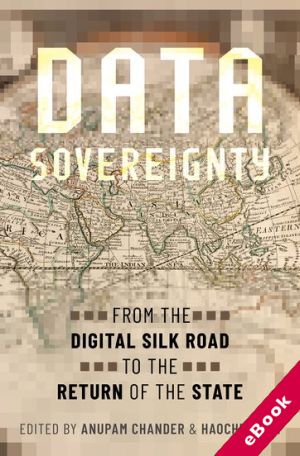
The device(s) you use to access the eBook content must be authorized with an Adobe ID before you download the product otherwise it will fail to register correctly.
For further information see https://www.wildy.com/ebook-formats
Once the order is confirmed an automated e-mail will be sent to you to allow you to download the eBook.
All eBooks are supplied firm sale and cannot be returned. If you believe there is a fault with your eBook then contact us on ebooks@wildy.com and we will help in resolving the issue. This does not affect your statutory rights.
Who, if anyone, should regulate the internet? Governments around the world have answered this question robustly: they will. Digital sovereignty - the exercise of control over the internet - is the ambition of world leaders as a natural extension of traditional sovereignty and as a bulwark against the reach of foreign power. The question posed to governments now is not who should regulate the internet, but how should it be done.
Data Sovereignty: From the Digital Silk Road to the Return of the State focuses on the question of territorial control over data flows and attempts by national and regional governments to place limits on the free movement of data across a global internet. Drawing on theories in political economy, international law, human rights, and data protection, this volume offers new theoretical perspectives and thought-provoking ideas about the nature and scope of digital sovereignty. It examines the extent to which new technologies, such as artificial intelligence, robotics, and automation, pose challenges to digital sovereignty and how those challenges might be addressed. In chapters that are both descriptively comprehensive and analytically rich, the book explains the national, regional, and international legal frameworks for regulating the digital economy.
Professors Anupam Chander and Haochen Sun have assembled a distinguished team of experts across multiple fields to address the promise and pitfalls of digital sovereignty in the context of trade liberalization, data localization, and human rights protection. In a world that is still grappling with the scope of the internet, Data Sovereignty offers a timely and thorough investigation of the ongoing conflict between the state and the internet.